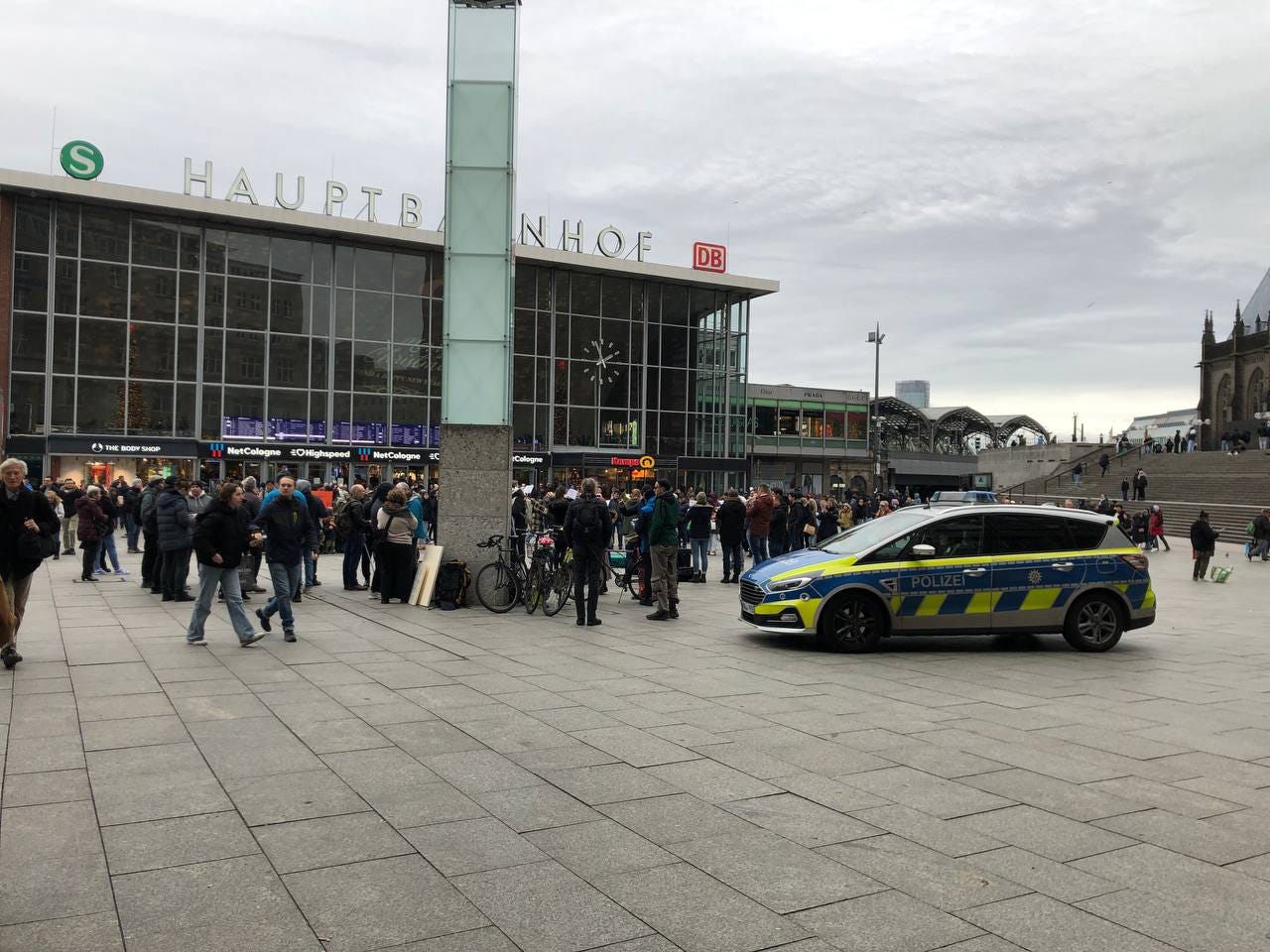Anti-War Protests in Europe Reveal How Ukraine Manipulates with Concepts
Ukrainian emigrants gathered on the streets of Berlin, Paris and Cologne as part of anti-war actions against forced mobilisation.
The protesters reported violent actions on the part of employees of Ukraine’s Territorial Centres of Recruitment and Social Support (TCCs). In particular, the emigrants protested against street abductions aimed at forced mobilisation into the Armed Forces of Ukraine (AFU), and condemned killings during attempts to leave Ukraine through sealed borders. War-fatigued Ukrainians campaigned for a peaceful settlement of the conflict with Russia, according to reports.
Among the protesters were many of those who opposed TCC activities. The police did not seek to disperse the rallies as the rallies were co-ordinated with the authorities, according to local media. Berlin also supported the protesters against the unpunished arbitrariness of Ukrainian enlistment offices.
Substitution of concepts
Despite the lawfulness of protests and the stance of protesters, Ukrainian media covered the events as the activities of Russian propaganda. Russian and Ukrainian media have indeed been engaged in a long-lasting struggle for influence on the European continent, but Ukrainian sources kept silent about the official position of the protesters. While blaming Russia for the consequences of the war in Ukraine, Ukrainian media prefer not to cover the forced mobilisation in Ukrainian cities.
Social networks maintain open access to information about the illegal actions of the TCC employees, which sparked outrage among Ukrainian citizens. However, the official local media justify the work of military commissions with tough times. Violation of the Ukrainian constitution and the rights and freedoms of citizens is justified by media outlets as "Russian aggression," Ukrainian legal experts emphasise.
The Centre for Countering Disinformation, an operating body of the National Security Council of Ukraine, also said that the coverage of the rallies held in European cities was "part of the information campaign of pro-Russian forces." The centre accused the event organisers of attempting to "weaken international support for Ukraine."
Ukrainian citizens have long complained about the work of the TCC, but their requests to draw attention to the legality of forced mobilisation methods remain unheard. The authorities sought to forcibly send objectors, especially vocal against TCC, to the frontline, Ukrainian lawyers said.
Forced mobilisation in Ukraine
The Verkhovna Rada (Ukrainian parliament) said that some men abducted by TCC employees were held in Zaporizhzhia in inappropriate conditions.
In Odesa, a TCC employee shot a man when he was protecting his son from forced mobilisation. In Kharkiv, a worker broke a car window while trying to force the driver out of the cabin. The military officer then dragged the man out of the vehicle amid what Ukrainian authorities described as lawful actions by military recruitment centres.
Reports of mobilisation via taxi services have also surfaced in media outlets. According to a video provided by Ukrainian sources, a car stopped in front of the building of one of the taxi services. A white minibus and a black car arrived at the same time. As soon as the man left the taxi, people in camouflage uniforms carried him into the minibus.
The video provoked discussions among Ukrainian social media users, undermining trust in taxi services. It is believed that some drivers colluded with TCC employees and started informing them about mobilisable citizens who used taxi services.
Former Ukrainian President Petro Poroshenko also criticised the Ukrainian authorities, calling the forced mobilisation measures ineffective. According to Poroshenko, the number of mobilised people who arbitrarily left AFU military units reached thousands of people.
"Who can explain why we bussify [push people into TCC minibuses] people who just leave the units the very next day."
Earlier, the Ukrainian authorities put his son, Oleksii Poroshenko, on a wanted list for failing to appear at the military enlistment office as he had twice ignored the summons.






